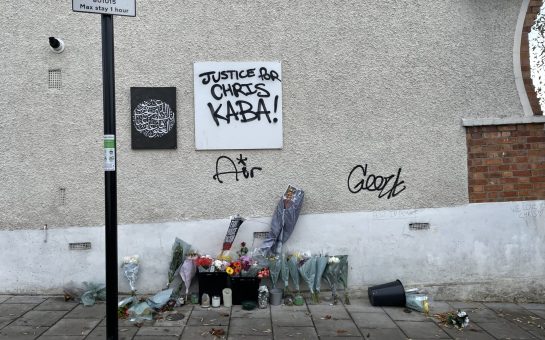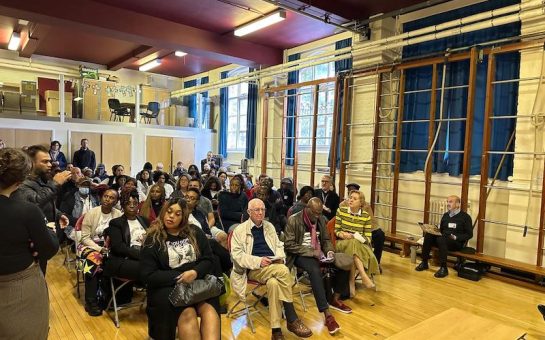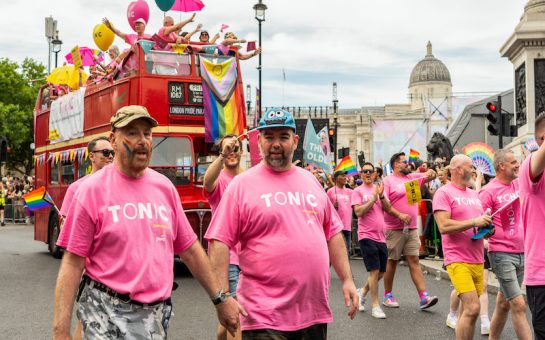On a busy day, Brixton is saturated with traffic and wafts of smoggy exhaust fumes.
But during lockdown, the streets turned silent as many commuters worked from home. This change was a welcome breath of fresh air for many, especially those living near one of the most polluted roads in the UK.
London Air Network data from January to August shows this respite from toxic air was short-lived.
Several types of health-damaging pollution, including nitrogen oxide, PM10 and oxides of nitrogen, have been creeping up at Brixton Road since the loosening of lockdown in May.
And worryingly, this pandemic is making the link between air pollution and racism in the area even more apparent.
People of colour are particularly affected by air pollution, and also have higher vulnerability to coronavirus partially due to unclean air in urbanicities such as Brixton.
Activists are demanding racial justice. In early August, Brixton high street was locked down as protesters occupied the area. Usually on this yearly Emancipation Day, a march centred around reparations is organised.
But this year, activists also partnered with environmental campaigners to literally clear the air in the usually polluted space.
Pollution strongly affects how well the immune system responds to coronavirus. People from Black, Asian and Minority ethnic backgrounds who live in regions with high air pollution are more likely to be admitted to hospital for coronavirus, and then go on to intensive care.
Dirty air is already known to be a major cause of mortality. The British Medical Journal recently highlighted how just air pollution alone is set to kill more people than COVID-19.
“Lambeth Council has not done enough to curb air pollution in the borough,” said Esther Stanford-Xosei, a reparations expert who spearheaded the Emancipation Day Reparations event.
“Brixton was the epicentre of black-led resistance to anti-racism through a series of protests and uprising in the 1980s, it therefore holds a special place in the iconic pan-Afrikan struggle for black people’s liberation.”
However, despite a long history of black activism in the area, Stanford-Xosei believes that air pollution has been consistently sidelined.
A finding of the 2019 Mayor’s annual survey of London was that Lambeth is among the worst boroughs in central London for action on air pollution.
“Years of maldevelopment and under-investment has left the Black majority population marginalised, underserved and exposed to huge levels of environmental toxins and pollutants,” said Stanford-Xosei.
“When we examine which communities have access to clean air and which do not, we see striking patterns of entrenched inequality.”
Poverty partially accounts for why racially marginalised people are more affected by air pollution.
But studies show that racism runs deeper than just class and wealth. Indifference and ignorance, inadequate testing of industrial chemicals, housing discrimination and corporate greed all contribute towards this environmental racism, argues science writer and medical ethicist Harriet A. Washington in Nature.
Non-white people in the UK are also particularly vulnerable to the harmful effects of air pollution due to overcrowding in urban areas, she writes: “Only 2% of white people in the United Kingdom live in crowded conditions, but 30% of Bangladeshi, 16% of Pakistani and 15% of black African households are overcrowded.”
Climate change exacerbates existing inequalities, said Cllr Claire Holland, Deputy Leader (Sustainable Transport, Environment & Clean Air) at Lambeth Council.
She launched the Lambeth Climate Action Hub in July. This initiative encourages the community to work together to keep post-lockdown pollution levels low. Ideas about how to do this can also be shared online using the hashtag #LambethClimateAction.
She said: “We have already put a series of measures in place to cut car use and support greener transport, to support local business, to increase recycling and to make homes and offices more sustainable.
“But there’s still much to do which is why we’re determined to leverage the huge passion in this borough for improving our air quality, innovation and doing our bit to tackle climate change.”
Featured image credit: Stop the Maangamizi.



